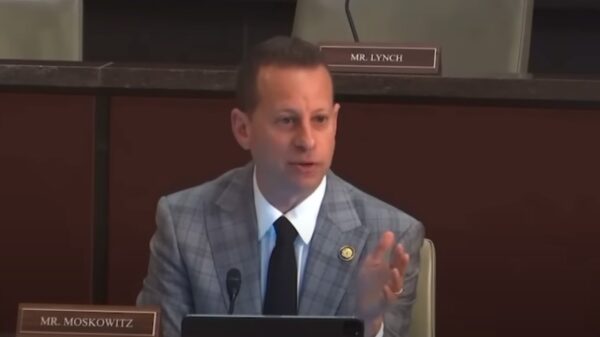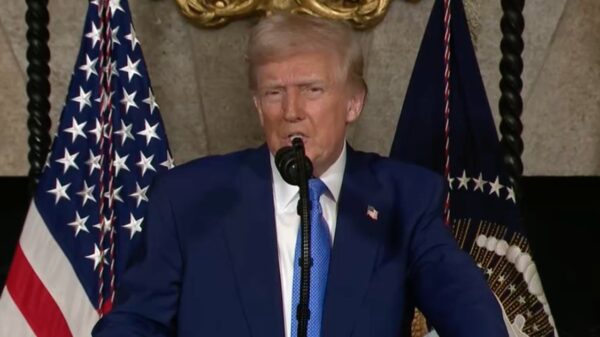On Wednesday, U.S. Sen. Marco Rubio, R-Fla., spoke on the Senate floor to discuss the inauguration of President Joe Biden and the future of America. He said the following:
Rubio: At noon today Joe Biden became our new president. I never served with him here in the Senate, but I know from direct, firsthand experience that he is a man of great empathy. And I pray that God bless him with wisdom, strength and health to lead our nation. Because we live in troubled times.
President Trump was elected president and received 75 million votes in the last election because he was brutally honest about the grievances and fears that are now dividing our country. But he did not create them. And his exit today, alone, will not “Make America Normal Again.”
Because the sentiments that brought him to power are still with us.
And they aren’t about ideology; they are about things at the core of our identity as people, and as a nation.
People want a country where they have the opportunity to find a good job, get married, live in a safe neighborhood, not go into debt if they have a baby, send their kids to a good school, and one day retire with dignity. But tens of millions of Americans are losing hope that will ever be possible for them. And they are deeply frustrated that those in government and both political parties aren’t doing enough about it.
People need a sense of belonging and purpose. But the places that once provided this — our families, the local organizations we were involved in, the church or synagogue we belong to — these are all collapsing, leaving tens of millions of Americans feeling isolated and alienated. And some have turned to partisan politics and online conspiracy cults to fill the void that those institutions once filled.
The overwhelming majority of Americans reject racism, bigotry, and discrimination. But they also reject identity politics, which constantly divides us by race, ethnicity, and gender.
They are proud we are a nation of immigrants. But they want to have immigration laws that are followed and immigration laws that are enforced.
Most Americans accept that our society is changing. They understand that some have different views or lifestyles. But they resent the effort to demonize, punish, and persecute the traditional values of our Judeo-Christian heritage.
They believe everyone is entitled to dignity and respect. But they are tired of walking on the eggshells of political correctness and being forced to undergo “sensitivity training” because everyone seems to be so easily offended these days by everything.
They understand something needs to be done about those who use social media to spread dangerous lies and instigate violence. But they are troubled that five tech CEOs, elected by no one, accountable to no one, have the power, if they so choose, to wipe out, to silence anyone, even a president.
They were horrified about what happened here in the Capitol and want those people put in jail. But they wonder where the outrage was this summer when rioters set fire to police cars, occupied police stations, attacked courthouses, and looted private property.
And they see firsthand every day the extraordinary damage being done by this terrible pandemic and the price we are now paying for our bitter political divisions. So they will never understand how the first thing we are going to focus on is an impeachment trial of a president who is no longer in office.
Today, for the fifty-ninth time in our history, we peacefully transfer power from one leader to the next. That it was on the very steps which just two weeks ago were the site of an unimaginable attack on democracy was a reminder to us and a powerful message to the world that our republic remains resilient.
But now the hard work of self-government begins. And these anxieties I just described of tens of millions of Americans must be acknowledged and addressed. For if they are ignored or allowed to fester, we’re going to be left a nation vulnerable to those willing to stir our most destructive impulses.
Today, President Biden struck an important tone of national unity, and I believe that they were sincere.
But pursuing a radical agenda in a divided country will not contribute to unity; it’s cynicism that destroys trust.
Fanning the flames of grievances or pursuing vengeance disguised as accountability will not produce unity; it’s the politics of resentment and retribution, which leaves us a fractured nation of people who hate each other.
Demanding that the other side agree to all of your demands isn’t unity; it’s the arrogance of believing only those who agree with us are good and anyone who disagrees is not just wrong — but actually are evil.
Real unity isn’t everyone having the same ideology, views, or ideas. The unity we need is the one that comes from remembering who we really are.
We Americans are not a racist or nativist people. We are a good and compassionate people. Who, in our overwhelming majority do not ask about race when they donate unwrapped toys so no child wakes up on Christmas morning to an empty tree. Who don’t ask the ethnicity of our soldiers, sailors, and airmen and -women when they send care packages to them, as they defend us far from home.
We Americans are a bold people. In our veins runs the blood of pilgrims and settlers, of exiles, immigrants, and former slaves, who refused to surrender to fear in pursuit of a better life.
And we Americans are not the inheritors of an American Dream that is some prize to be acquired through a winner-take-all fight. We are the inheritors of a Dream which anyone can achieve without it being denied to someone else.
This is who we were when we inspired and changed the world.
And now this is who we must be again.
A people who still disagree over principles and argue over policies, that has to happen because our republic depends on every view having a voice and every voice being heard.
But also people who now understand that we have to find a way to share a nation and a future… or share the condemnation of history and the rebuke of Americans yet to come.





















